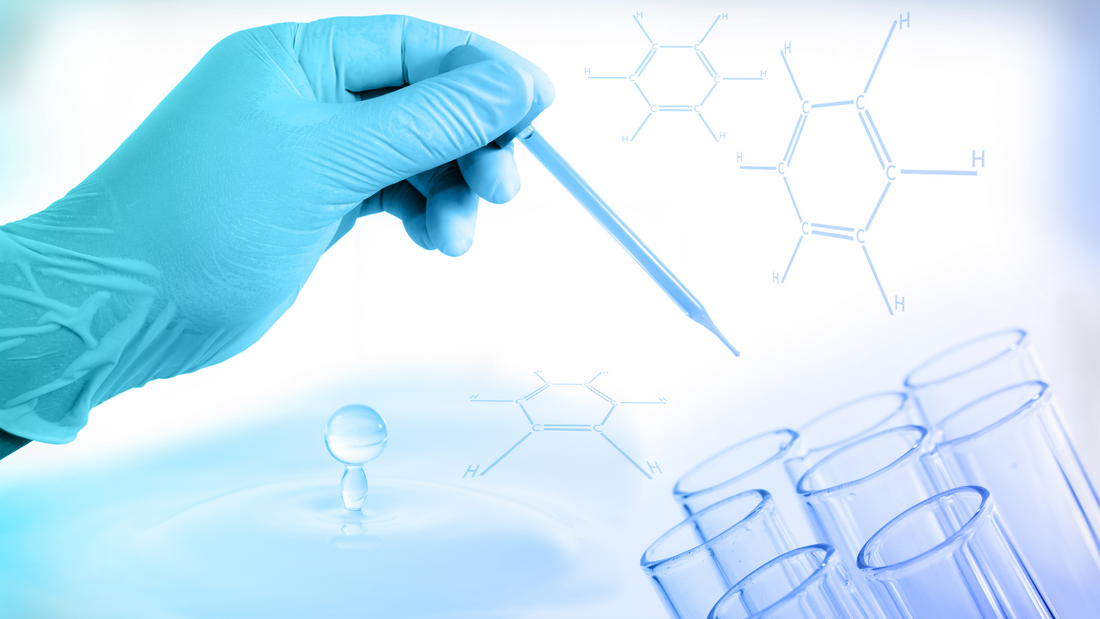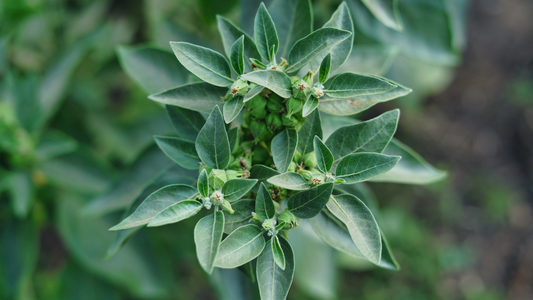- Blog
- Mumijo and Shilajit - Heavy Metals Under the Microscope

Mumijo and Shilajit - Heavy Metals Under the Microscope
Shilajit Mumijo Heavy Metals - Natural Healing Power or Hidden Risk?
Mumijo Heavy Metals: Facts and Myths
The discussion about Mumijo heavy metals is often characterized by misunderstandings and half-truths. The fact is that Mumijo, as a natural product, can contain traces of heavy metals. This is due to its geological formation and does not necessarily imply a health risk. The crucial factors are the type and amount of heavy metals present, as well as the frequency and dosage of intake.
A widespread myth suggests that all heavy metals in mumijo are harmful. This is not correct. Some heavy metals like iron, zinc, or copper are even vital for the human organism in small amounts. Heavy metals only become problematic in higher concentrations or when they are toxic variants like lead or mercury.
Scientific studies on mumijo heavy metals show varying results. Some studies indicate increased concentrations of certain heavy metals, while other analyses find harmless levels. This variance underscores the importance of careful quality control and product selection.
The myth that mumijo is fundamentally free of heavy metals does not stand up to critical examination. At the same time, the blanket condemnation of mumijo due to possible heavy metal contamination is equally misleading. A differentiated view and reliable quality controls are necessary to assess the actual risks and benefits of mumijo.
Shilajit Heavy Metals: What You Need to Know
The discussion about Shilajit heavy metals is similar in many ways to the debate about Mumijo, as it essentially concerns the same natural product. Heavy metals can also occur naturally in Shilajit, which is due to the geological processes involved in its formation. The concentration and type of heavy metals can vary depending on the place of origin and extraction method.
An important aspect to consider is the quality of the Shilajit product. High-quality, purified Shilajit should only contain safe amounts of heavy metals. Reputable manufacturers regularly test their products for heavy metal contamination and provide the results transparently. As a consumer, you should pay attention to such quality evidence.
The health effects of heavy metals in Shilajit depend on various factors. These include the type and amount of heavy metals ingested, the frequency of consumption, and the individual constitution of the consumer. While some heavy metals can even be beneficial in trace amounts, others can become problematic at higher concentrations.
It is important to understand that not every heavy metal exposure is automatically dangerous. Nevertheless, you should be cautious when using Shilajit and adhere to the recommended dosages. If you have uncertainties or health concerns, it is advisable to consult a doctor or nutrition expert.
Heavy metals in natural products: A general overview
Heavy metals are natural components of the Earth's crust and are therefore found in many natural products. The most well-known representatives include lead, mercury, cadmium, and arsenic. These elements are characterized by a high density and atomic mass. In small amounts, some heavy metals like iron or zinc are even essential for the human organism. It only becomes problematic with excessive concentration or with toxic heavy metals.
Natural products such as herbs, medicinal plants, or indeed mumiyo and shilajit can absorb heavy metals from the soil. The concentration depends on various factors, such as the geological characteristics of the source area or possible environmental pollution. The method of extraction and processing also plays a role in the heavy metal contamination of natural products.
The presence of heavy metals in natural products is not inherently concerning. What matters is the quantity and type of heavy metal. Legal limits regulate which concentrations are considered safe. Nevertheless, many consumers are worried about potential health risks from heavy metals in dietary supplements and other natural products.
For manufacturers and importers of natural products, this means a special responsibility. Regular inspections and analyses are essential to ensure the safety of the products. Consumers should be aware that "natural" does not automatically mean "free of contaminants" and should inform themselves about the quality and origin of the products.
Health effects of heavy metals
The health effects of heavy metals can vary greatly depending on the type and amount of metal ingested. Some heavy metals like iron, zinc, and copper are essential in small amounts for various bodily functions. Others, such as lead, mercury, or cadmium, are considered toxic and can be harmful even in small doses.
Excessive exposure to toxic heavy metals can lead to various health issues. These include kidney and liver damage, neurological disorders, immune system impairments, and in severe cases, even cancer. The symptoms of heavy metal poisoning are often nonspecific and can include fatigue, headaches, concentration difficulties, or digestive problems.
Particularly problematic is the fact that some heavy metals can accumulate in the body. This means that even small but regular intakes over a longer period can lead to a critical burden. Therefore, caution is advised when taking dietary supplements or natural products that may contain heavy metals over the long term.
It is important to emphasize that the mere presence of heavy metals in a product does not automatically pose a danger. The concentration and the form in which the heavy metal is present are crucial. Well-regulated and controlled products should not contain health-threatening amounts of heavy metals.
How are heavy metals detected in Mumijo and Shilajit?
The detection of heavy metals in Mumijo and Shilajit requires precise analytical methods. One of the most common techniques is atomic absorption spectrometry (AAS). In this method, the sample is heated and broken down into its atomic components. Based on the absorption of light at specific wavelengths, specific heavy metals can then be identified and quantified.
A more precise method is mass spectrometry with inductively coupled plasma (ICP-MS). In this process, the sample is transferred into a plasma, and the contained elements are separated and analyzed according to their mass. This technique allows for the detection of very low concentrations and is particularly well-suited for the analysis of complex natural products such as mumijo and shilajit.
In addition to these highly specialized procedures, simpler screening methods are also used. These include colorimetric tests, which detect certain heavy metals through color reactions. Although these methods are less precise, they are suitable for quick preliminary examinations.
Quality-conscious manufacturers have their products regularly tested in independent laboratories. This not only determines the concentrations of individual heavy metals but also examines their bioavailability. This provides insight into how easily the heavy metals can be absorbed by the body. The results of these tests should be communicated transparently to enable consumers to make an informed purchasing decision.
Legal regulations and limit values
The legal regulations and limits for heavy metals in dietary supplements such as Mumijo and Shilajit vary by country and region. In the European Union, strict regulations apply, as outlined in Regulation (EC) No. 1881/2006. This regulation defines maximum levels for certain contaminants in food, including heavy metals.
There are specific limits for dietary supplements that are based on the daily intake amount. These values take into account both the toxicity of the individual heavy metals and the typical consumption amounts of the products. The limits are particularly strict for highly toxic heavy metals such as lead, cadmium, and mercury.
Compliance with these limits is monitored by the relevant authorities. In Germany, for example, these are the state offices for consumer protection. Manufacturers and importers are obliged to ensure the safety of their products and to conduct regular inspections. Violations may result in severe penalties and the recall of the affected products.
It is important to understand that these limits are based on the current state of science and are regularly reviewed. They represent a compromise between consumer protection and practical feasibility. Stricter recommendations may apply for particularly sensitive groups such as pregnant women or children.
Mumijo without heavy metals: Is that possible?
The question of mumijo without heavy metals concerns many health-conscious consumers. Essentially, it is important to understand that mumijo, as a natural product, always contains traces of minerals and thus also heavy metals. A completely heavy metal-free mumijo would be deprived of its natural composition and possibly also its effectiveness.
Nevertheless, there are methods to reduce the concentration of unwanted heavy metals in mumijo. Modern purification methods such as ion exchange or special filtration techniques can significantly lower the content of concerning heavy metals. These processes must be carried out carefully to preserve the valuable ingredients of mumijo while removing harmful elements.
Some manufacturers advertise "heavy metal-free" or "purified" mumijo. These products usually undergo strict quality controls and purification processes. However, it is important to remain skeptical of claims of completely heavy metal-free mumijo, as this is hardly possible from a scientific point of view.
For consumers who place particular importance on low heavy metal contamination, it is advisable to look for products that are transparent about their cleaning methods and test results. Ultimately, it is about finding a balance between preserving the natural properties of the mumijo and minimizing potential risks from heavy metals.
Quality criteria: What to look for when buying
When selecting Mumijo or Shilajit products, you should pay attention to several quality criteria to purchase a high-quality and as safe as possible product. First and foremost is the transparency of the manufacturer regarding the origin and processing of the raw material. Reputable suppliers provide detailed information about the extraction and purification of their products.
An important criterion is the conduct and disclosure of laboratory analyses. Look for products that are regularly tested for heavy metals and other contaminants. The test results should be easily accessible, ideally directly on the packaging or the manufacturer's website. Analyses conducted by independent, accredited laboratories are particularly trustworthy.
The consistency and color of the product can also provide clues about its quality. High-quality Mumijo or Shilajit typically has a dark brown to black color and a resin-like consistency. For powdered products, you should pay attention to a uniform grain size. Significant deviations in color or texture may indicate inferior quality or contamination.
Certifications and quality seals can provide additional security. Look for organic certifications or quality seals from recognized testing organizations. Packaging also plays a role: High-quality products are often offered in opaque, airtight containers to protect the ingredients from oxidation and spoilage.


